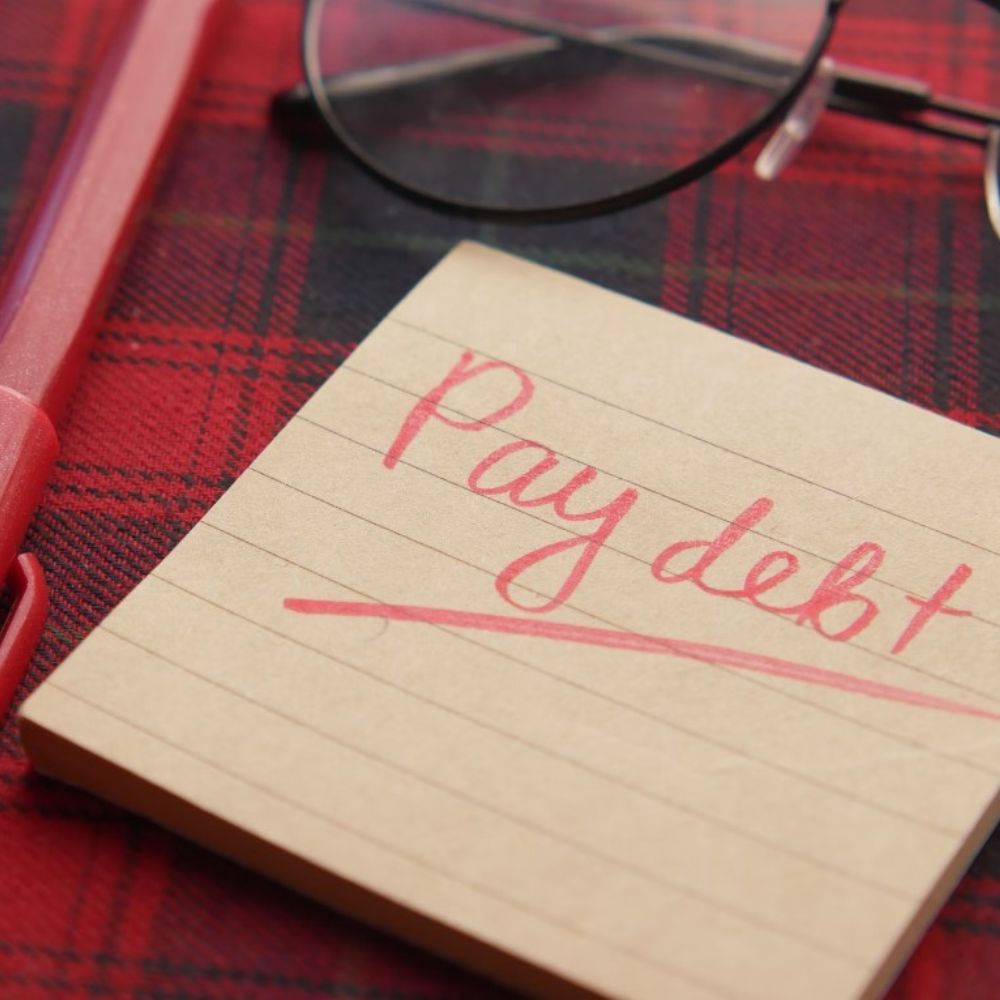
Debt Recovery Lawyers

Our office is conveniently located in Sydney: 801, Level 8/100 William St, Woolloomooloo NSW 2011 (view in Google Maps).
How do our debt recovery lawyers help?
At Progressive Legal, we understand the challenges businesses face in debt recovery such as communication hurdles, documentary challenges and timely retrievals. Our expert team specialises in creating foolproof and tailored strategies to expedite the retrieval process. Our approach includes the use of:
- Persuasive and precise letters of demand for prompt action;
- The review of contracts to identify leverage points for recovery; and
- Statutory demands to leverage the legal framework for quick resolutions

Our debt recovery lawyers will provide you with a tailored strategy and advice regarding your debt owing.
Why choose our debt recovery lawyers?
Our commitment to client success sets us apart. With a proven track record in debt recovery, we pride ourselves on our ability to surpass expectations. Engage with us for transparent fee structures, dedicated customer support, and a results-driven approach.
Your business deserves the best – choose Progressive Legal for unparalleled expertise in debt recovery tailored to Australian regulations.
Article – 7 Essential Steps To Debt Recovery
Recovering outstanding debts is an unavoidable challenge that businesses often face, and navigating the legal intricacies of debt recovery can be a complex and daunting task. For business owners, understanding the detailed legal steps involved is crucial for successfully reclaiming owed funds.
At Progressive Legal, we recognise the financial strains these situations can impose on your business. Below are our 7 essential steps to debt recovery.
1. Initial assessment and identifying the debt
The journey to debt recovery begins with a clear identification of the outstanding debt. As a business owner, it’s essential to gather all relevant documentation, including invoices, contracts, and any communication related to the debt.
This serves as the foundation for the subsequent legal steps and provides a clear picture of the outstanding amount.
2. Issuing a letter of demand
The first formal step in the legal process is sending a demand letter to the debtor. This letter outlines the details of the debt, including the amount owed, the nature of the debt, and a clear timeline for repayment.
A well-drafted letter of demand from legal professionals can often prompt a quick response, resolving the matter without the need for further legal action.
3. Negotiation and mediation
In many cases, businesses prefer to resolve debt matters amicably to maintain relationships with their clients or partners. Negotiation and mediation can be effective tools in achieving this.
Professional mediators can facilitate discussions between parties, aiming for a mutually beneficial resolution. This step emphasises the importance of communication and compromise in resolving debt-related disputes.
4. Commencement of legal proceedings and filing a statement of claim
If amicable solutions prove unsuccessful, the next legal step involves filing a Statement of Claim with the appropriate court.
In New South Wales, this typically involves submitting the claim to the Local Court for debts up to $100,000 or to the District Court for amounts exceeding this threshold.
The debtor is then served with the Statement of Claim, outlining the details of the debt and the legal action being pursued.
5. Default judgment
If the debtor fails to respond to the Statement of Claim within the specified timeframe, the creditor can apply for a default judgment.
This involves requesting the court to make a decision in favour of the creditor due to the debtor’s lack of response. Once granted, the court issues a judgment order, stating the amount owed and any additional costs.
6. Enforcement of judgment
The enforcement of judgment is a critical phase in the debt recovery process, and understanding the available methods can significantly impact the success of your efforts. Here are the key avenues for turning the court’s decision into concrete action:
Writ for the Levy of Property
One potent tool at your disposal is the “Writ for the Levy of Property.” This legal instrument empowers the sheriff to seize and sell the debtor’s assets, converting them into funds that can satisfy the owed debt.
The sheriff’s involvement adds a layer of authority to the process, ensuring a structured and lawful execution of the asset seizure. This method is particularly effective when the debtor possesses valuable assets that can be readily converted into cash.
Garnishee Order
Another strategic approach is the implementation of a Garnishee Order. This involves redirecting funds owed to the debtor by third parties, such as a bank or employer, directly to the creditor. By intercepting these funds before they reach the debtor, you gain a direct channel for debt recovery.
This method is effective in cases where the debtor has a predictable income or funds held in a bank account, providing a consistent source for repaying the outstanding debt.
Examining the Debtor
In some instances, a more nuanced approach involves compelling the debtor to disclose their financial situation. By initiating an examination of the debtor’s financial affairs, you gain insights into their assets, income sources, and overall financial standing.
This examination serves as a crucial step in determining the most effective means of recovery. Understanding the debtor’s financial landscape enables you to tailor your approach, choosing the methods most likely to yield successful outcomes.
7. Bankruptcy or wind-up proceedings
In extreme cases where all other avenues prove fruitless, creditors may consider initiating bankruptcy proceedings against an individual debtor or wind-up proceedings against a company.
However, these steps are often viewed as last resorts due to their significant legal and financial implications.
Key takeaways
Recovering a debt involves a series of carefully orchestrated legal steps, each crucial to the overall success of the process. As a business owner in New South Wales, understanding these steps empowers you to make informed decisions and take appropriate actions to recover what is rightfully yours.
Remember, seeking professional legal advice throughout this process is invaluable, ensuring compliance with the law and increasing the likelihood of a favourable outcome.
If you find yourself in the complex terrain of debt recovery, Progressive Legal is here to guide you through every step, providing expert assistance tailored to the unique circumstances of your business. Take control of your financial future today, and let Progressive Legal be your trusted partner in the journey to debt recovery success.
Debt Recovery Lawyers FAQs
How do you initiate legal action to recover a debt?
What do debt recovery lawyers do?
Debt recovery lawyers specialise in facilitating the retrieval of owed funds for businesses. They navigate legal complexities by drafting persuasive demand letters, initiating court proceedings when necessary, and employing various methods for efficient debt recovery. Their expertise ensures a lawful and prompt resolution to debt-related challenges, safeguarding the financial well-being of businesses.
What steps should be taken before hiring debt recovery lawyers?
Before engaging a debt recovery lawyer, preparation is key. Collect all pertinent documents tied to the debt – such as invoices, contracts, and communication records. This comprehensive documentation serves as a robust foundation for legal action.
With clear insights into the debt’s nature and context, the lawyer can draft targeted strategies, significantly enhancing the chances of a swift and successful debt recovery. Your proactive approach in gathering and organising these materials not only expedites the legal process but also ensures a more informed and effective collaboration with your chosen lawyer.
Can I recover legal costs incurred during debt recovery?
Absolutely. In numerous instances, you can recuperate the legal costs linked to debt recovery directly from the debtor. These costs encompass not only the lawyer’s fees but also court filing fees and expenses tied to enforcement actions.
It’s crucial, however, to establish clear and transparent terms regarding cost recovery with your debt recovery lawyer. This ensures that the process remains financially viable and that the debtor is held responsible for the incurred legal expenses, further strengthening your position in the debt recovery endeavor.
What happens if the debtor declares bankruptcy?
When a debtor declares bankruptcy, the debt recovery process gets more complex. Creditors find themselves navigating bankruptcy proceedings, requiring active participation. The ultimate outcome hinges on the debtor’s assets and the funds available for distribution among creditors.
In such scenarios, seeking professional legal advice becomes imperative. A legal expert can guide creditors through the complexities of bankruptcy proceedings, ensuring that their rights and interests are safeguarded throughout the process. Understanding the implications of debtor bankruptcy is pivotal in making informed decisions and pursuing the most effective strategies for debt recovery.
“Progressive Legal were an outstanding choice in recovering a debt through a Garnishee Order … excellent communicators and clear, precise information was provided to me with frequent updates. The fee structure was reasonable and was presented upfront before action was taken. I would unreservedly engage Progressive Legal in any future legal matters.”
Graham
Debt Recovery Lawyers
Contact us today if you require expert legal advice regarding debt recovery.


